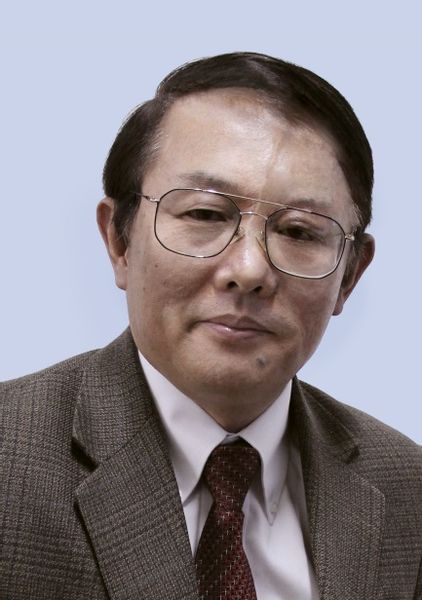
Dr. Nanping Wang
Dr. Nanping Wang is Professor of Physiology and Medicine at the Health Science Center, ECNU. Dr. Wang received his medical degree from Xi’an Jiaotong University (XJTU) and obtained his PhD in Peking University (PKU). He completed his medical residency in the Northwestern Hospital of XJTU and fellowship in the Kitasato University Hospital, Japan as a recipient of the Sasakawa Medical Fellowship award. After practicing medicine in Xi’an and Beijing, he received postdoctoral research training in Germany at Free University Berlin and the USA. Since 2000, he had been a principal investigator in the University of California and several Chinese Universities.
His lab mainly works on molecular mechanisms of cardiovascular physiology and diseases. The main goals are to (i) understand the regulatory mechanisms of gene expression with special emphases on novel roles of nuclear hormone receptors; (ii) explore the molecular mechanism underlying mechano-transduction, especially the post-translational modifications of the important signaling proteins (iii) identify the natural compounds to develop new treatments for cardio-metabolic diseases. Cellular & molecular biology, physio-pathological and pharmacological approaches in combination with cutting-edge technologies are implemented in the lab to achieve these goals. The projects are currently supported by multiple major grants from the National Science Foundation of China and the Ministry of Science and Technology. He has published over 140 scientific articles on the peer-reviewed international journals and mentored over 50 students and fellows. Many of his trainees are principal investigators, professors and physicians in prestigious medical settings and institutions in China and abroad.
Representative publications
https://pubmed.ncbi.nlm.nih.gov/?term=Nanping+Wang&size=100
1. Xiao L and Wang N*. PPAR-δ: A Key Nuclear Receptor in Vascular Function and Remodeling. J Mol Cell Cardiol. 2022(169):1-9.
2. Liu YH, Liu Y, Zhang X, Fang L, Zhao B, Wang N*. Activation of the endocannabinoid system mediates cardiac hypertrophy induced by rosiglitazone. Acta Pharmacol Sin. 2022 (43):2302-2312.
3. Xiao L, Nie X, Cheng Y, Wang N*. Sodium-glucose cotransporter-2 inhibitors in vascular biology: cellular and molecular mechanisms. Cardiovasc Drug Ther. 2021(35):1253-1267.
4. Lai B, Xie X, Li F, Wang Y, Dang E, Zheng Y, Wang G, Xiao L* and Wang N*. Xenobiotic constitutive androstane receptor (CAR) is highly induced in psoriasis and promotes keratinocyte proliferation. J Invest Dermatol. 2021(141):2895-2907.
5. Nie X, Tang W, Zhang Z, Yang C; Qian L, Xie X, Qiang E, Zhao J, Zhao W, Xiao L*, Wang N*. Procyanidin B2 Mitigates Endothelial Endoplasmic Reticulum Stress through a PPARδ-Dependent Mechanism. Redox Biol. 2020 (37):101728.
6. Wang M, Qian L, Li J, Ming H, Fang L, Li Y, Zhang M, Xu Y, Ban Y, Zhang W, Zhang Y, Liu Y*, Wang N*. GHSR Deficiency Exacerbates Cardiac Fibrosis: Role in Macrophage Inflammasome Activation and Myofibroblast Differentiation. Cardiovasc Res. 2020(116):2091-2102.
7. Ban Y, Liu Y, Li Y, Zhang Y, Xiao L, Gu Y, Chen S, Zhao B, Chen C*, Wang N*. S-Nitrosation Impairs KLF4 Activity and Instigates Endothelial Dysfunction in Pulmonary Arterial Hypertension. Redox Biol. 2019(21):101099.
8. Zhang Z, Xie X, Yao Q, Liu J, Tian Y, Yang C, Xiao L*, Wang N*. PPARδ agonist prevents endothelial dysfunction via induction of dihydrofolate reductase gene and activation of BH4 salvage pathway. Br J Pharmacol. 2019(176):2945-2961.
9. Tian Y, Yang C, Yao Q, Qian L, Liu J, Xie X, Ma W, Nie X, Lai B, Xiao L*, Wang N*. Procyanidin B2 activates PPARγ to induce M2 polarization in mouse macrophages. Frontiers Immunol. 2019 (10):1895.
10. Li C, Xiao L, Jia J, Li F, Wang X, Duan Q, Jing H, Yang P, Chen C, Wang Q, Liu J, Shao Y, Wang N*, Zheng Y*. Cornulin Is Induced in Psoriasis Lesions and Promotes Keratinocyte Proliferation via PI3K-Akt Pathways. J Invest Dermatol. 2019;(139):71-80.
ORCID
https://orcid.org/0000-0002-8528-8132
